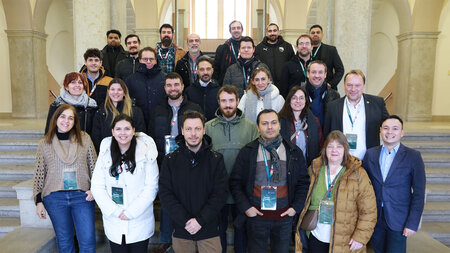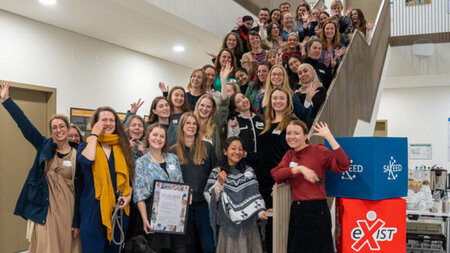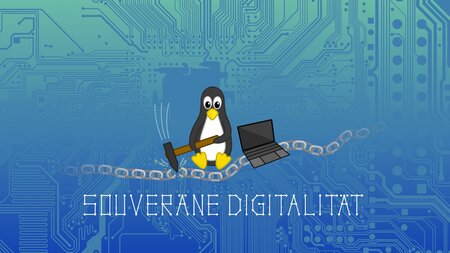Informatik-Kolloquien
329. Informatik-Kolloquium
Hochschulöffentliche Vorträge
Mittwoch, 31. Mai 2023
Die Übertragung erfolgt per Videokonferenzsystem BigBlueButton.
Die Zugangsdaten können vorher im Dekanat ( dekanat@…) erfragt werden.
09:20 Uhr - Herr Dr.-Ing. Sasanka Potluri
Vorlesungsreihe – Ambient Intelligence; Teil II - Argumentation: Die datenzentrierte Charakter
Die genannte Vorlesung ist eine mögliche Planvorlesung, die im Masterstudiengang mit dem Titel "Ambient Intelligence" stattfinden kann. Die gesamte Vorlesung ist in vier Teile gegliedert: 1. Erfassen (Sensing), 2. Argumentation (Reasoning), 3. Tätig (Acting), 4. Interagierend (Interacting). Die Probevorlesung wird ein Teil von Teil II Argumentation sein und ein Thema im Argumentation ist die datenzentrische Natur der Ambient Intelligence. Daten sind ein wesentlicher Bestandteil der Ambient Intelligence. Je datenintelligenter ein System ist, umso besser ist seine Fähigkeit, einen bestimmten Kontext in einer Situation zu verstehen. Die Hauptziele dieser Vorlesung sind:
- Die Studenten werden die Bedeutung und die Herausforderungen der Datenerfassung kennen lernen.
- Die Studenten werden die Bedeutung und die Herausforderungen im Umgang mit Daten kennenlernen.
- Die Studenten werden die verschiedenen Techniken der Dateninferenz kennen lernen.
- Thema
My research relation with DIKW (Data, Information, Knowledge, Wisdom)
All my work as a researcher revolves around the data and a way to handle, process, and extract value out of it. So, this presentation will summarize how my research in different working groups at universities will correlate with the commonly used terminology in information science DIKW. DIKW is a hierarchy model that loosely represents a functional relationship between data, information, knowledge, and wisdom. In today’s world, every scientific work some way or other revolves around data. So, this classical approach is selected to present my research expertise, since my masters studies till today. A discussion on my work before and after this pyramid will also be made to make my expertise match with the advertised position requirements.
10:40 Uhr - Herr Dr. Stefan Reitmann
Interaktive ubiquitäre Systeme (Master Informatik) – Wearables
Das Themengebiet der interaktiven ubiquitären Systeme umfasst eine grundlegende Übersicht zur Mensch-Maschine-Interaktion speziell für mobile und allgegenwärtige Systeme. Dabei werden sowohl Hintergründe multimodaler und mobiler HCI angesprochen, als auch vertiefte Informationen, bspw. zu speziellen Methoden der Interaktion (Gesten, Tangible, Sprache), vorgestellt.
In der Lehrprobe wird der Schwerpunkt der Interaktionen mit Wearables und Möglichkeiten der Integration verschiedener Mensch-Maschine-Schnittstellen in deren Ökosystem gezeigt. Dies stellt einen Ausschnitt der Vorlesung "Wearables" dar, in welchem grundlegende Motivationen, Typen und zukünftige Entwicklungen dieser Systeme angesprochen werden.
Synthetic data for automated spatial understanding
Depth sensors are common technology within a wide range of domains, e.g. autonomous driving and mobile robotics. These sensors generate a representation of the environment that can be automatically analyzed by AI methods, feeding knowledge back into the behavioral modeling of the system. To simplify the training data generation process for the AI of these systems, different virtual sensing approaches are proposed, which enable a largely automated generation of semantically annotated point-cloud data in virtual 3D environments.
Within these tools, different depth sensors can be loaded from presets, customized sensors can be implemented and different environmental conditions (e. g., influence of rain, dust) can be simulated. The semantically labeled data can be exported to various 2D and 3D formats and are thus optimized for different deep learning applications and visualizations. In addition, semantically labeled images can be exported using the rendering functionalities of the used frameworks.
Alle interessierten Personen sind herzlich eingeladen!





